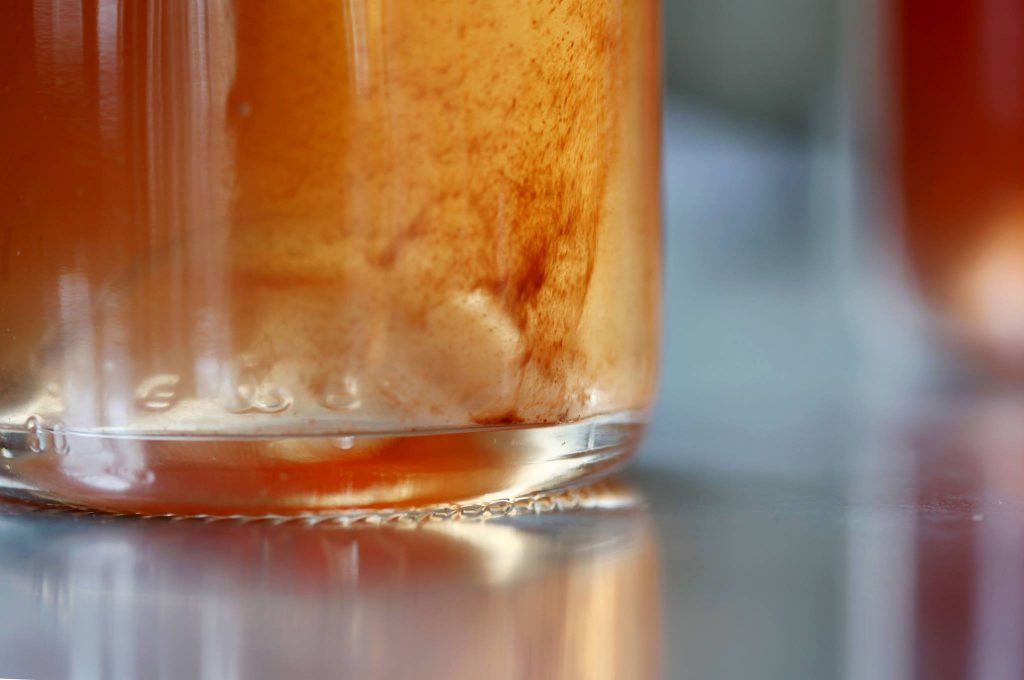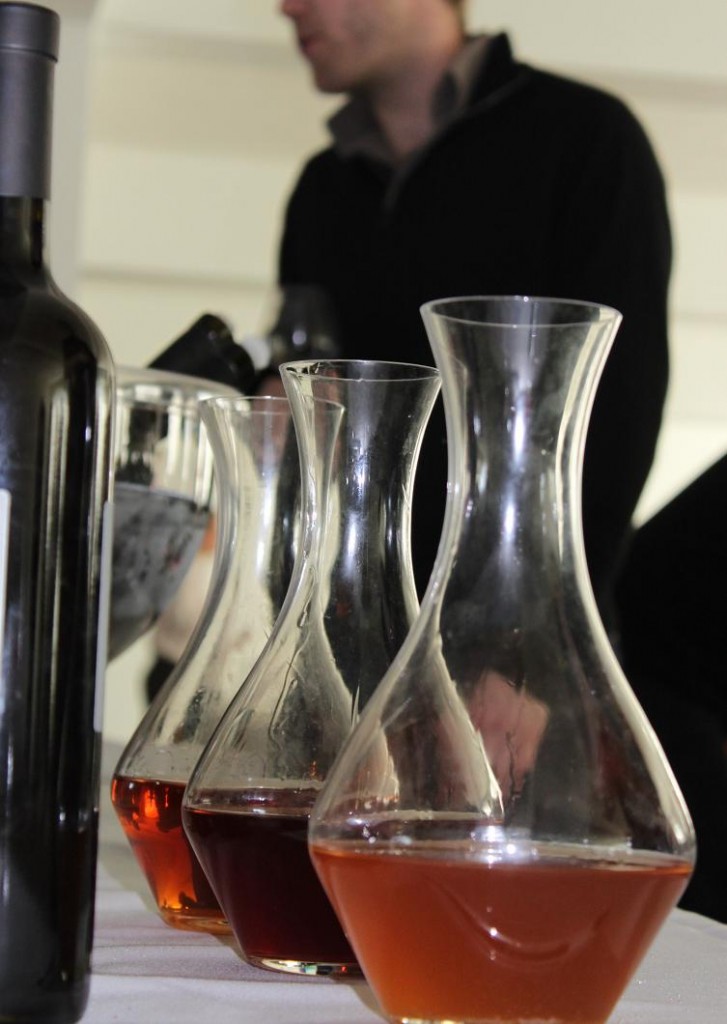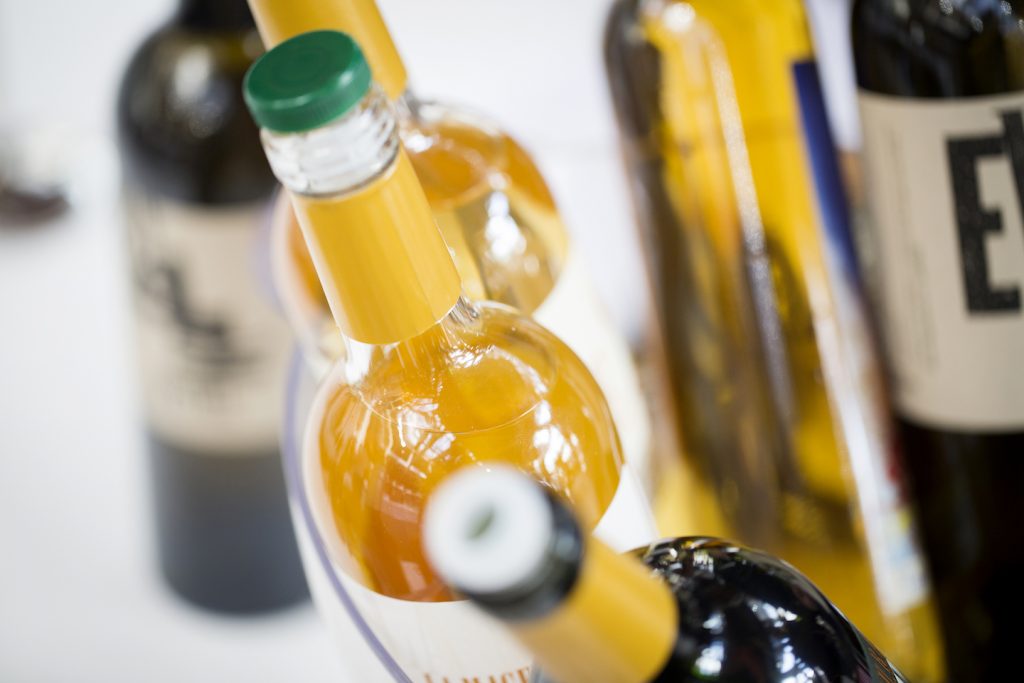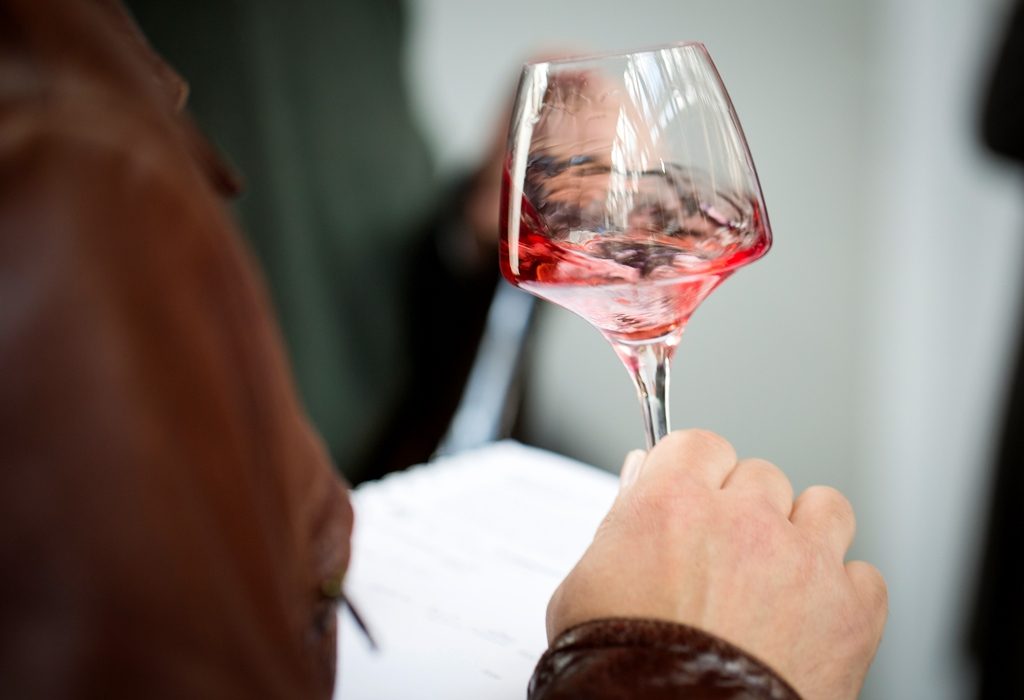
This was a webinar organised by Serhat Narsap as part of the WSET Diploma exam on business coursework, the subject in this case being “Natural Wine”.
Around 30 students from around the world tuned in. Big fist-bump to the guy who got up at 5.00 am in Hawaii! The students submitted their questions before the webinar.
The Q & A was eventually divided into three broad sections: Style; Marketing & Business; Past, Present & Future.
Due to time constraints my answers were necessarily less exhaustive than below!
Style
How do you define natural wines?
Wines made with grapes that come from organically/biodynamically farmed vineyards, are carefully harvested by hand, and fermented with their own yeasts and the transformation process subsequently achieved without chemical intervention and nothing added until bottling – other than minimal sulphur (or no sulphur if not needed). It’s admittedly broad definition and one that does not address the nature or the spirit of what it means to be really natural.
Do you see the term Natural Wine as the way wine is produced, or is it more of a conviction and statement? (for example, many producers who work “naturally” and sometimes follows organic and biodynamic methods wouldn’t use the term natural wine, even if they could).
It is both an intuitive approach to farming and winemaking and the result of that approach. I don’t believe that vignerons necessarily set out to make something called a “natural wine”, but they feel the truest results of their craft are when they make wines as naturally as possibly. I am sure that some growers wear the natural badge with pride, but not because they want to be part of a movement or fit into a scene.
Sulphur – friend or foe?
Both. Sulphur is a natural product, a primary element, used in the vineyard. In winemaking it is invariably used and sometimes abused. It is a necessary tool in as its use helps prevent bacterial problems – mousiness, VA. Sometimes abused in that its overuse contributes to the denaturing of a wine and moreover the taste and sensation of sulphur is easily detectable on the palate. To make a wine without any sulphur whatsoever is a challenge. One needs healthy undamaged grapes and great vigilance. That great wine can be made without sulphur has been proven time and again.
Do you believe hard-core, dogmatic natural winemakers who believe a wine isn’t natural unless it’s made without SO2, are hurting the category and pushing out winemakers who follow all the natural wine standards except the use of a small amount of SO2 at bottling?
No. I don’t know that many growers who are out and out zero-sulphur fundamentalists. The vast majority use a little bit before bottling – a small addition, say 20 ppm. Others use it at other stages – at harvest, or when the wine is racked. Natural vignerons work according to what the situation demands and prefer to work without chemical manipulations (which is not to say that they are not intervening – that is an entirely different matter). I like to say that natural producers have an empirical approach to using sulphur. Commercial pragmaticism dictates that you don’t want to spoil the wine. As one vigneron said to me: “I do what is needed.” Conventional winemakers tend to work from a recipe; they will add a fixed quantity of sulphur to wine, because they have been told that it is the correct thing to do.

Where do you stand on the use of SO2 controversy?
There’s so much more to natural wine than it being a no-sulphur product. It is perceived by certain critics of natural wine that zero-sulphur is an article of faith – it isn’t. Nor is a numbers game, where you draw a line and state unequivocally “this is natural and this is not.”.
Some of my best experiences have been with no added sulphur wines, because what I have tasted in the wine feels elemental, pure raw energy in a glass and that is what I want on a visceral level. That the vigneron feels comfortable making their wines without sulphur is, as mentioned, down to the high-quality raw material of the grapes allied to the very careful nature of the wine’s elevage.
I reject the argument that you have to use sulphur in winemaking though understand that getting to that stage is a labour of love – there are no short cuts, you need a clean winery, to be prepared do lots of critical tasting, and to adapt as necessary. I never tell vignerons not to use sulphur, but I ask them whether they think they might be using more than is necessary. I am also super sensitive to the presence of sulphur and am inclined to think that more is used than is strictly necessary.
In the end, we don’t live in a wine world of sulphur Manicheanism. There is no good or bad, right or wrong.
How often have you found faults in natural wines? And should a consumer be refunded for wine faults such as volatile acidity, brett, mousiness etc?
An interesting question. Here I would draw a distinction between faults (absolute) and flaws (relative imperfections according to subjective judgement). There are various things to consider here. Firstly, is the fact that natural winemaking has changed hugely over the years. What are we tasting these days is nothing like what was going on 20 years ago. The wines are more precise, less funky and yes, less faulty. Certainly more consistent. There is many a story of a natural producer pouring a barrel of vinegar down the drain back in the day. The faults – if they are faults enumerated above are wine faults in general, rather than specific to natural wine.
I choose my wines carefully so I tend not to encounter so many faulty wines. VA is an interesting characteristic– it gives certain wines a personality and brings them into focus. Too much is too much, of course, but it is not a bad thing, by absolutist definition. Some of the so-called iconic wines (ever) have had a lot of VA in them. Brett is something I see hardly at all nowadays. There are certain vineyards that have brett in them. I’ve tasted more brett in classic Bordeaux, Burg and Rhone from the 1980s than I ever tasted in natural wines! It fits with a convenient anti-natural narrative to accuse natural wines of faults without any evidence that these faults are more apparent on natural wines than conventional ones. Mousiness is certainly a more common phenomenon and seems to affect a batch or a bottling. Usually it dissipates over time. Returning to the issue of faults vs flaws, where one stands depends on one’s personal view of what is an acceptable degree of flaw; VA, even brett, can provide an accent or note in the wine – classic case of wabi-sabi where the flaw makes the whole. Too much and the whole is lost. To answer the question, every case is different.
As a wine company we taste the wine anddecide on a course of action. If we sell a wine that consumers are unable to come to terms with – for whatever reason – we will take it back, be it faulty or flawed.
Biodynamically produced oak barrels – how popular is this amongst natural wine producers?
Kalleske in Australia work with them – I don’t know anyone else who is using them, as there is only one cooper in the world who makes them. Natural wine producers, like anyone, enjoy working with coopers whom they have built a relationship with.
Is the term “Natural wine” problematic for the producers, since “Natural wine” isn’t a regulated term and also a bit diffuse, or is it actually beneficial, since everybody in the supply chain decides for themselves what that term means.
It is not a problem. Most producers are just making wine to the best of their ability and as naturally as they can. Some people have a problem with the word – I don’t. Surely, we know what we are talking about, even when we disagree about the taste of the wines and the wisdom of working in the less interventionist idiom.
The alternatives to the word natural wine are pretty clunky and we will never find a one-size-fits-all nomenclature. Not that it matters greatly. In fact, it is healthier that we don’t. Regulation is generally done by bureaucrats who don’t make wine and purport to be defending the interest of consumers. By that token they should be regulating the many additives that are not mentioned on the labels of wines that are produced in a chemical fashion. What is natural about a wine is not the numbers anyway, but the approach, the philosophy, the story, the taste, the feeling – it is the undefinable as well as the definable. Natural is about capturing all that nature has given you over the growing period (and all the information in the vineyard) and being the midwife for the wine’s natural birth. Ultimately the opposite of natural is not unnatural. It follows also that just because you are not making natural wines doesn’t mean you are inferior; you are simply espousing a different approach. For me, the idea of natural wine hinges on these relative approaches to transforming grapes into wine. Some avowedly try to preserve as much as possible of what goes into the grapes, whereas others use chemical process and technique to ensure that the product is consistent and stable.
The lack of an absolute definition of natural wine is a strength. For growers, they can strive to reach personal goals, for consumers they have to come up with their own definitions and standards. As soon as you create a stringent legal definition you narrow people’s freedom to decide for themselves.

The biggest detractors of Natural wines argue against their “funkiness”, while this same character appeals to many NW consumers. Do you see natural winemakers purposefully trying to make these wines “funky”, or is that just poor winemaking and natural winemakers should and are striving for more “palatable” wines?
Funky is an epithet often used in the straw man arguments deployed by arch-critics of natural wine. To lager drinkers a real ale would be funky; for those who love plastic cheese, unpasteurised real cheese would be undeniably strange and a step too far. Funkiness means “not the way I would expect a wine to taste”, which can be a good thing as it takes us out of our conventional tasting comfort zones. If funkiness is being used in a more technical sense of the wine sporting an aldehyde character (for example), then it can be a tiresome characteristic. But wine has the capacity to surprise. Sometimes you open a bottle and it is blowing off all sorts of weird and funky aromas. Pour it into a carafe, expose it to oxygen, and you can get a completely solid and tightened-up wine.
For a long time, blind tasting wine has focused on the typicity of grapes and regions. Can you talk about how natural wines redefine, refine, reinforce or interfere with current notions of typicity in blind tasting?
As with any wine one needs to consider everything that goes into it. Starting with the farming. Terroir, as we know, is the aggregate of climate, soil, aspect, nature, vineyard health, and human choice. The wine is the liquid representation of this, a transformation, memory or interpretation, of place. Natural wines may be said to be the result of farming that respects all the elements of terroir and vintage. Having said that the winemaking process is a tricky one – each decision pushes the wine in a different direction; the maceration, the temperature of the winery, the nature of the vessel, racking or not, filtering or not and so forth. A lot of natural producers are looking for an ideal of purity or typicity, but what that is… is naturally unclear. Many natural vignerons see themselves as channeling or conducting grapes into wine rather than “making wine”. Interestingly, one of the common observations one hears from natural vignerons, is that they are always aiming to respect terroir and the land, and want that respect to come out clearly in their wines.
If we assume that some of the aspects of natural wine that have historically been considered “flaws,” are in fact not flaws (ie: mousiness, brett, VA, cloudiness, etc), how can we tell a good natural wine from a bad one?
Our taste is subjective as is our tolerance for flaws/faults. Who is making the judgement here? What is a clear wine, but a wine that has been filtered, perhaps even strip filtered? Here clarity is the opposite of transparency. What is a cloudy wine if the cloudiness is part of the wine, the lees in suspension? What we have done is to create a modern cultural taste archetype, which is everything to do with consistency, homogeneity and cleanliness, nothing to do with tradition, personality, singularity. I maintain you have to understand the wine and not the fault. Is the VA helping or hindering? Ditto the brett – is it a nice flavour or overpowering? And so forth. There are some absolute faults; there are flaws which are kind of relief or a staging post in the wine’s development. Oenologists and some wine commentators would totally disagree and assert that wine is either a clean product or not worthy to be a product at all.
Faults/flaws aside, how do we ever tell a good/great wine from a bad one? Greatness is not ticking boxes in a quality manifesto; it is an inherent property in an individual that strikes a chord with an individual drinker at a particular time. The drinker will perceive that the wine has integrity, a kind of harmony (flaws and all) and transcends simple compartmentalization.
Why are natural wines cloudy? Is there a scientific explanation to this?
It is all down to filtration and fining. Every time you rack a wine off the heavy lees it is going to be pretty clean. Settling, cold stabilization, filtering are processes to clean up a wine and make it commercially more appealing. A lot of natural wines throw a sediment even in their youth as material deposits fall out. Cloudiness is not specific to natural wines though.
Pascaline Lepeltier MS “whatever wine you like, you can find a natural alternative anywhere in the world.” Do you think that’s true?
Pascaline is always right! If you look at the most celebrated growers in certain regions then natural wine is the yardstick (Beaujolais, Jura, Loire, Roussillon, for example). You also have to examine at individual wine cultures. Where there is a dynamic culture of organic and BD farming you will tend to find a critical mass of natural winemakers. In regions where farming is monocultural and winemaking is for a fixed commercial purpose then no. Pascaline is right about the diversity of styles of natural wine -there are those you can drink for fun, others are more gastronomic, others you can age. You can find straight wines, linear wines, juicy wines, complex wines, wild wines. Wines for every mood and some moods that you didn’t know you had. And here is the thing which some commentators miss – some of these natural wines are the most haunting and wonderful drinks on this planet.

Market/Business:
As an importer of wine have you experienced a consumer demand for more natural wines?
Now, most of the enquiries we receive concern these artisan wines. Having said that many of the enquiries are from people who may only have a hazy idea of what they are looking for. They often conflate organic with natural. Others believe that only zero-sulphur wines are natural. Others think that natural wines won’t give you a hangover. There are certain myths on all sides, but there is undoubtedly curiosity and a desire to learn more about the wines and what makes them different.
Is it profitable to produce and sell only natural wines?
It’s a living! And quality of life is more important than making a big profit. I am in the “small is beautiful” philosophical camp. Small are prepared to pay what the wines are worth, rather than haggle for every cent to fight in the price point market. Their customers recognise the real value of such wines. Artisan small producers are not competing with bigger ones and they don’t need to undervalue their wines. A small production allows you to allocate to your various markets and sell out on release.
With regards to the criticism towards natural wines in the industry, where does it mainly stem from?
From various sources. Oenologists, producers, wine critics, journalists, wine educators, wine traditionalists. It stems from a mixture of jealousy (the fear of being irrelevant), critical laziness and misapprehension and contrarianism – the dislike of perceived trends. Some people think that natural wine is a fraud being perpetuated by a few people, designed to hoodwink the ignorant wine drinking populace. Whoever they may be. Wine has been dominated by a certain class of drinker and shrouded for ages in critical hierarchies – call it “Parker Syndrome”. The new generation of drinkers does not cleave to such orthodoxies. There is also a new generation of wine educators, critics and bloggers who not only don’t regard the natural wine movement (if such a thing exists) as the cultural enemy, but enjoy drinking, talking and writing about the wines.
As a natural wine importer, how important is carbon footprint? Many wine importers are looking to purchase wines from closer regions in order to reduce their carbon footprint?
Carbon footprint is difficult to measure and distance is only one of many variables to consider. It is important the producer works sustainably and that wine companies consider the environmental impact of shipping. Indeed the impact of all their actions.
As an importer of natural wine, how critical is factors such as distance, temperature-control and storage facilities? Would you risk importing natural wines from Australia?
We consider all those factors and try to ship at the right times of year, use refrigerated containers and lorries as necessary. We even monitor the daily temperatures during the collection period and if we are not confident then we will delay that shipment. It has never been a problem for us (touch wood) despite the technical difficulties of grouping wines from many growers. We were the first company to ship natural wines out of Australia. A lot is said about the stability of these wines (or rather their fragility), but they are lot more resilient than one thinks. The logistics of shipping applies to all wines and not just naturally-made ones. Any living product should be transported and stored carefully using temperature control.
To be continued in Part Two…


I attended Doug Wregg’s webinar and was truly impressed with his passion and his knowledge about the subject of natural wine. I especially appreciated his non-dogmatic thinking regarding the subject. I am using a lot of what he shared with us in my WSET Diploma D6 research paper on natural wine.